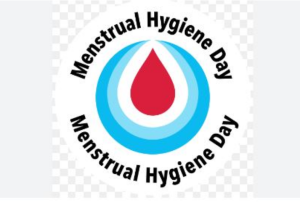World Menstrual Hygiene Day 2024: Working Towards a #PeriodFriendlyWorld

Every woman deserves access to safe, dignified, and healthy menstrual care. Yet for many, menstruation continues to be surrounded by stigma and misinformation—especially among young girls and women in rural areas of India. This lack of awareness and access to proper menstrual hygiene products leads to physical health issues and emotional distress.
World Menstrual Hygiene Day 2024, observed on May 28, is a global campaign dedicated to raising awareness about the importance of good menstrual hygiene and education. It also aims to tackle the real challenges faced by millions of women and girls—particularly in low-income regions with limited access to clean water, sanitation, and safe menstrual products.
A Voice for Change: Dr. Sujata Kar on Menstrual Health
Dr. Sujata Kar, a leading gynecologist in Bhubaneswar, supports this year’s theme: #PeriodFriendlyWorld.
“In a #PeriodFriendlyWorld,” she explains, “stigma and taboos around menstruation become a thing of the past. Every girl and woman should have access to accurate period education, hygienic products, and safe facilities.”
She also sheds light on the health risks associated with poor menstrual hygiene and offers tips to manage menstruation safely.
Health Risks of Poor Menstrual Hygiene
Ignoring proper menstrual hygiene can lead to several infections and complications. Dr. Kar outlines key health risks:
- Urinary Tract Infections (UTIs): Infrequent changing of pads or tampons creates a breeding ground for bacteria, leading to infections in the urethra, bladder, or kidneys.
- Pelvic Inflammatory Disease (PID): When bacteria spread from the vagina to reproductive organs, it can cause PID—resulting in fever, pain, and even infertility.
- Yeast Infections: Wearing non-breathable pads or excessive use of feminine washes can cause yeast overgrowth, leading to irritation and itching.
- Bacterial Vaginosis: Failing to change menstrual products regularly disrupts the vagina’s natural balance, resulting in unusual odor, discharge, and discomfort.
Why Menstrual Hygiene Awareness Matters
Menstrual health is fundamental to women’s well-being, yet it’s often overlooked. Here’s why spreading awareness is essential:
- Empowering Girls: Education around menstruation enables girls to manage their periods confidently, reducing school absenteeism and dropouts.
- Breaking the Silence: Open discussions help dismantle taboos and promote health-seeking behavior.
- Early Education: Teaching girls about menstruation from the age of 8 helps them face puberty with confidence.
- Health Protection: Good hygiene practices help prevent common infections and long-term reproductive complications.
- Infrastructure & Access: Ensuring clean toilets, proper disposal systems, and affordable menstrual products creates a safe environment for all.
Menstrual Hygiene Tips for Every Woman
Dr. Kar recommends simple, effective practices to maintain menstrual health:
- Avoid bubble baths, perfumed soaps, or feminine hygiene sprays.
- Clean your vulva gently with plain water; avoid douching.
- Always wipe from front to back after using the toilet.
- Choose soft, unscented white toilet paper.
- Wear breathable cotton underwear and use 100% cotton sanitary pads.
- Change your pad or tampon every 4 hours—or sooner during heavy flow.
- Choose unscented, hypoallergenic menstrual products.
A Shared Mission: Ending Period Stigma
World Menstrual Hygiene Day 2024 is more than a campaign—it’s a movement toward dignity, equality, and empowerment. By spreading awareness, investing in menstrual health infrastructure, and promoting inclusive education, we can build a society where no girl or woman is held back by her period.
Together, let’s create a #PeriodFriendlyWorld—where menstrual health is prioritized, respected, and normalized.
